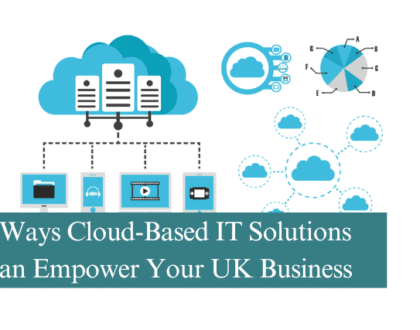
Small and medium-sized enterprises (SMEs) confront a considerable challenge in maintaining competitiveness within the current dynamic business environment. The ability to keep pace with ever-evolving technological trends is essential for staying ahead in the market. Nevertheless, numerous SMEs lack the internal IT expertise required, underscoring the importance of identifying the right IT provider to support their expansion and confer a competitive advantage.
The significance of technology for organisational success cannot be overstated. SMEs stand to gain various advantages from their IT investments, such as:
- Financial Savings Through Efficiency: Technology streamlines processes and automates routine tasks, allowing businesses to accomplish more with fewer resources, ultimately saving both time and money.
- Improved Productivity: Technology fosters seamless collaboration and swift access to information, empowering employees to work more efficiently.
- Increased Flexibility: Remote and hybrid working arrangements attract talent seeking work-life balance, simultaneously expanding the talent pool available to businesses.
- Effective Communication: Email, voice, video conferencing, and messaging applications foster efficient communication and collaboration with stakeholders, irrespective of their location.
- Cost Reduction: Digital storage and cloud solutions diminish infrastructure costs and may even eliminate the need for physical office space, thus reducing overhead expenses.
- Risk Management: Technology plays a crucial role in mitigating and preventing risks associated with cyber threats and data loss.
- Sustainability Support: Green IT initiatives enable businesses to reduce their environmental footprint.
A recent survey conducted by IONOS indicates that 79% of UK SMEs deem digitalisation crucial for their future viability. Nevertheless, SMEs often grapple with limited resources and lean budgets compared to their larger counterparts, posing challenges in managing their IT strategies. One effective approach to overcoming this challenge is to outsource to a specialised IT provider capable of offering cost-effective solutions and providing the necessary support.
In summary
In conclusion, the challenges faced by small and medium-sized enterprises (SMEs) in navigating the complex business landscape are considerable. The imperative to remain competitive necessitates a strategic approach to technology adoption, a realm where many SMEs find themselves at a disadvantage due to a lack of internal IT expertise.
Recognising the pivotal role that technology plays in organisational success, SMEs stand to accrue significant benefits from prudent IT investments. These encompass financial savings through enhanced efficiency, improved productivity, increased flexibility in workforce arrangements, effective communication across distances, cost reduction through digital solutions, adept risk management against cyber threats, and support for sustainability initiatives.
Despite the recognition of digitalisation’s critical role, SMEs often grapple with resource constraints and lean budgets. To address this, outsourcing to a specialised IT provider emerges as a viable solution. By engaging with such partners, SMEs can access cost-effective solutions and vital support, empowering them to not only survive but thrive in a technology-driven business landscape. As 79% of UK SMEs acknowledge the pivotal role of digitalisation in their future viability, the path forward involves embracing technology strategically, with the right external support, to ensure sustained growth and competitiveness.
Frequently Asked Questions
- How can SMEs balance the need for technological advancement with limited budgets?
- While recognising the critical role of technology, SMEs often face budget constraints. Prioritise essential technology investments that align with business goals, consider phased implementation, and explore cost-effective solutions through outsourcing.
- In what ways can technology support sustainability initiatives for SMEs?
- Technology contributes to sustainability by enabling paperless operations, efficient energy use, and remote work options. Green IT initiatives, such as cloud computing and virtualization, can significantly reduce the environmental footprint of SMEs.
- What cybersecurity measures should SMEs prioritise to protect against evolving threats?
- SMEs should focus on regular cybersecurity assessments, employee training programs, and the implementation of robust data encryption. Partnering with IT providers specialising in cybersecurity ensures proactive measures against evolving cyber threats.
- How can SMEs effectively transition to remote and hybrid work models using technology?
- Leveraging collaboration tools, virtual communication platforms, and cloud-based solutions can facilitate a smooth transition to remote or hybrid work models. Providing training and support for employees ensures optimal utilisation of these technologies.
- What role does employee training play in maximising the benefits of technology adoption for SMEs?
- Employee training is pivotal in ensuring that the workforce can effectively use technology to enhance productivity. Investing in ongoing training programs keeps employees updated on the latest technologies, promoting a culture of continuous improvement within the organisation.
Recommended Posts

Prepare for Windows 10 End of Life: What You Need to Know
18th July 2025

5 Ways Cloud-Based IT Solutions Can Empower Your UK Business
12th July 2025

Are you making the most of your Microsoft 365 licensing?
4th July 2025
